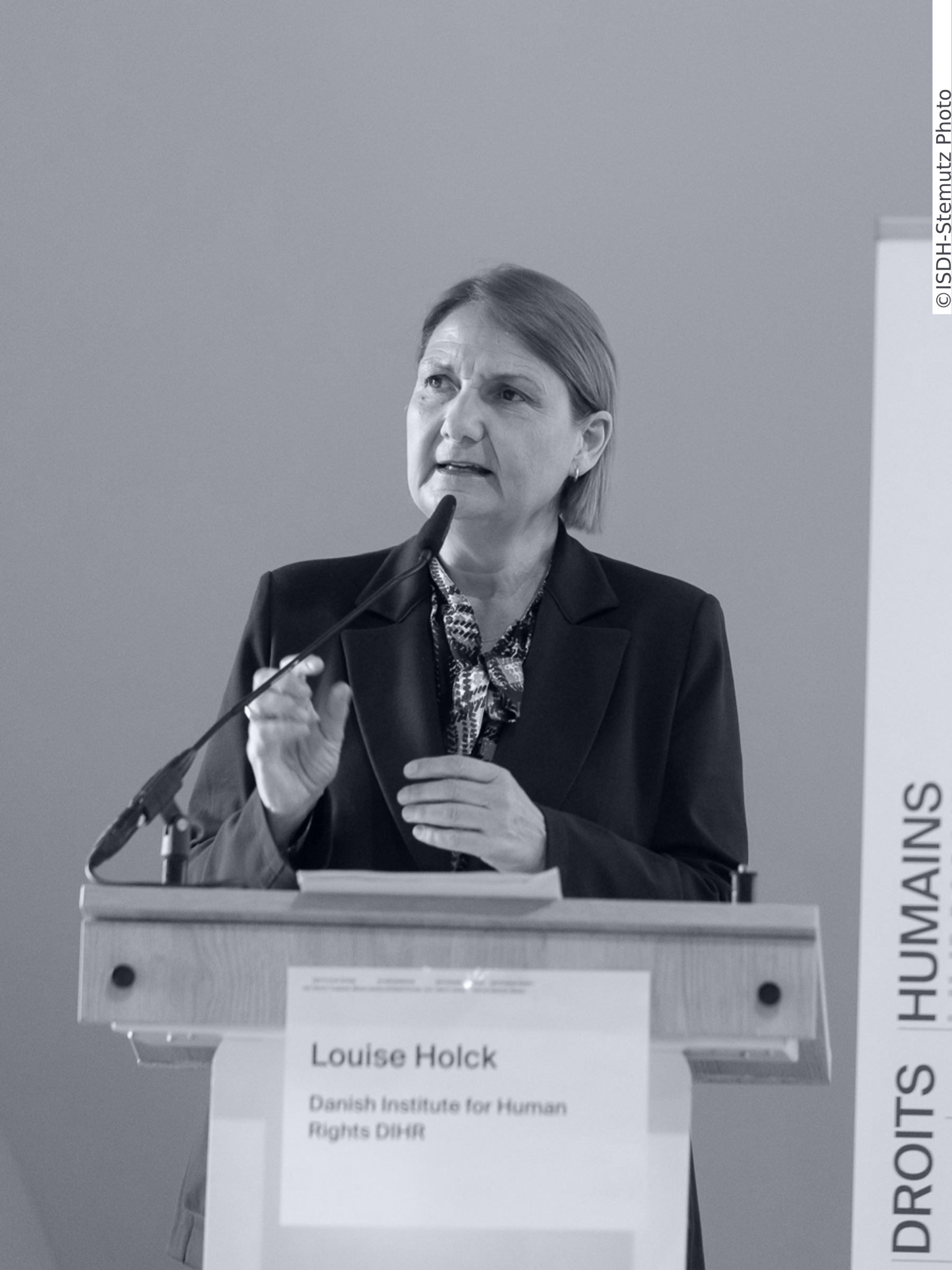Page context
“National Human Rights Institutions translate international norms into concrete, actionable policies and practices”

Ms Louise Holck was a guest at the SHRI’s first General Assembly in May 2024. In her keynote, she explained the unique role of national human rights institutions, both acting individually and as part of a regional network.
What makes National Human Rights Institutions (NHRI) unique, and how would you define their role?
NHRIs ensure that the state's obligations under international and regional human rights laws are not just acknowledged, but actively implemented. This positioning allows NHRIs to operate as both protectors and promoters of human rights.
As protectors, NHRIs monitor the state’s actions and intervene when human rights are threatened or violated. They provide a necessary check on governmental powers, investigating allegations of human rights abuses and holding the state accountable to its commitments.
As promoters of human rights, NHRIs engage in a broad range of activities aimed at fostering a culture of rights within society. This includes educating the public and government officials about rights, advising on legislation and policy to ensure they align with international human rights standards, and advocating for systemic change to eliminate practices that violate human rights.
Positioned uniquely between the state and civil society, NHRIs act as a bridge, translating international human rights norms into concrete, actionable policies and practices that impact individuals and communities at the local level.
“As protectors of human rights, NHRIs monitor the state’s actions. As promoters of human rights, they foster a culture of rights within society.”
Can you give recent examples?
The German Institute for Human Rights played a pivotal role in advocating for the implementation of the UN Guiding Principles on Business and Human Rights. It conducted consultations and provided expert recommendations that shaped the national policy framework. Their ongoing monitoring and public reporting continue to influence corporate accountability in Germany.
Similarly, the Danish Institute for Human Rights has actively engaged in promoting environmental rights. Its work includes assessing the human rights implications of large-scale environmental projects, and advising the Danish government on integrating human rights considerations into environmental impact assessments.
The Swiss Human Rights Institution (SHRI) joined the European Network of National Human Rights (ENNHRI) shortly after its foundation in 2023. What is ENNHRI and what does it do?
Your inclusion into ENNHRI marks not just an expansion of our network but a strengthening of our collective commitment to human rights across Europe.
“ENNHRI fosters an environment of collaboration and support, ensuring that each NHRI can achieve its full potential.”
ENNHRI represents European NHRIs in discussions with European Union institutions, the Council of Europe and other regional and international bodies. Through its advocacy efforts, ENNHRI ensures that the perspectives and experiences of European NHRIs are considered in the formulation of human rights policies and standards.
ENNHRI also provides capacity building to its members. Its programs are designed to enhance the skills and knowledge of NHRI staff and leadership. Finally, ENNHRI fosters an environment of collaboration and support, ensuring that each NHRI can achieve its full potential.
How may the SHRI carve out its role in its domestic environment?
Switzerland's role as a host for international diplomacy, including being the home of the United Nations Office in Geneva, positions the SHRI uniquely to influence international human rights standards.
The Institution could also look at internal challenges. While Switzerland is known for its high standard of living and robust democratic practices, like any country, it faces its own set of challenges, including migration policies or the protection of minority rights. These are possible areas where the Institute could make impactful contributions.
common.related_articles
Loading...